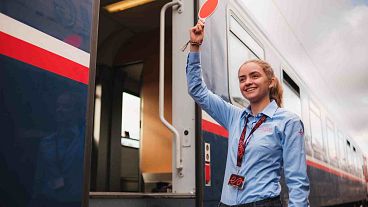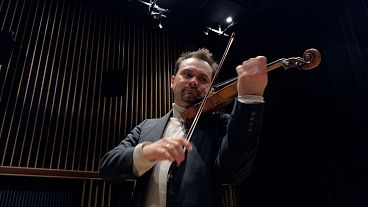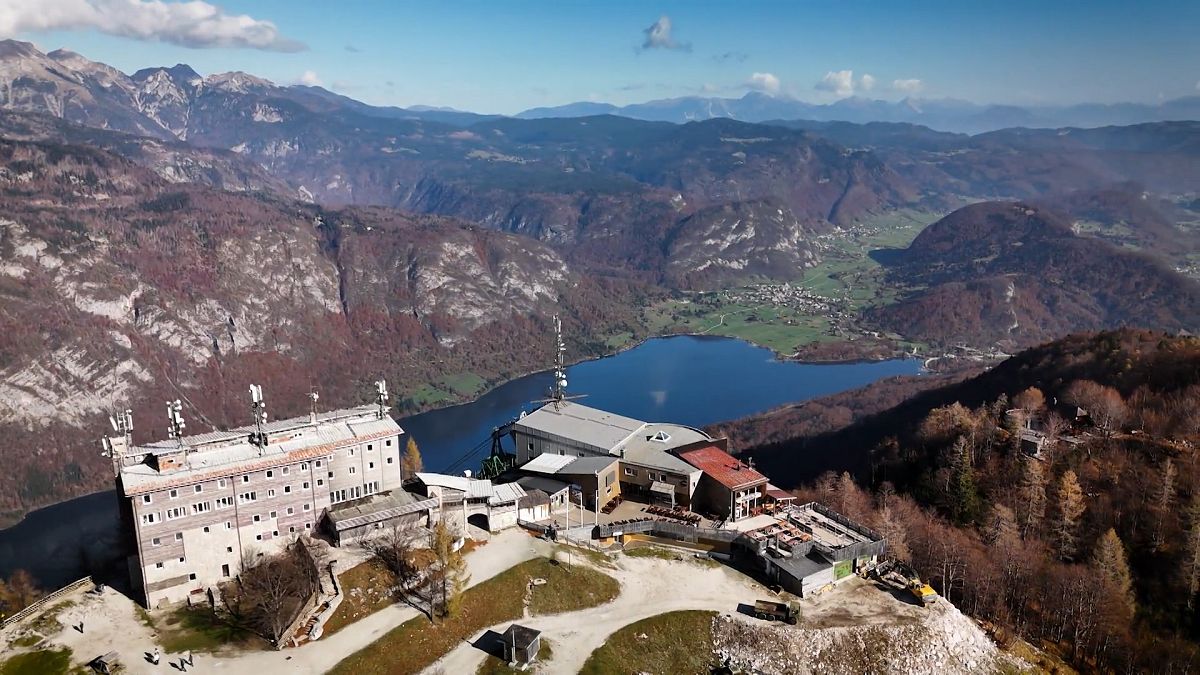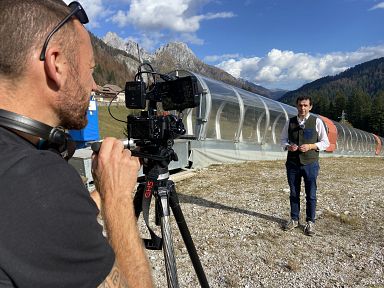As a result of climate change, low- and medium altitude ski resorts are becoming less attractive in winter. With the help of ten pilot areas, BeyondSnow is preparing them for ‘after the snow’.
In the heart of the Triglav National Park, Klemen Langus, director of the Bohinj Tourist Office, is seeing the number of visitors to the local ski resort falling year on year: “Ski tourism accounted for 35% of all our visitors 10 or 15 years ago. Now it’s 18-20%,” he laments.
The aim of the European BeyondSnow project (an Interreg project working with several regions at once) is to help Alpine regions overcome their dependence on snow.
For three years, EURAC and a dozen other partners have been tasked with developing a strategy to help resorts survive the social, economic and environmental consequences of climate change: “Our aim is to provide them with the data and tools to develop their own strategies,” explains Philipp Corradini.
How can we prepare for the end of ‘white gold’?
Lake Bohinj in Slovenia attracts 250,000 tourists a year, most of them in the summer. Overlooking this enchanting setting, 22 slopes welcome skiers at altitudes of between 1,500 and 1,800m. But for how much longer?
We need to find ways of developing hiking and cycling trails without damaging the pastures,” comments Klemen Langus. There are three main pillars we need to keep in mind when we talk about developing the area: agriculture, tourism and environmental protection.”
Bohinj is one of the ten pilot sites for the BeyondSnow project. Ten communities from six Alpine countries (France, Italy, Slovenia, Switzerland, Germany and Austria) are preparing for the future by sharing their experiences. In France, the Metabief resort in the Jura is taking part in the project.
The resorts conducted interviews with stakeholders and organised workshops, and we carried out a tourism survey for them,” explains Philipp Corradini. On the basis of all this information, they are currently drawing up transition strategies. So they’re developing a very community-based strategy that focuses not just on tourism, but on the overall liveability of the place they call home.”
As the snow is disappearing, so are the people
Transitioning also means fighting the rural exodus. In Italy, young people are leaving the mountains of Carnia as the snow deserts the tiny resort of Pradibosco, at an altitude of 1,100m.
Margherita Mabel Costantini, 28, despairs of this situation. She is also working on the BeyondSnow project:
“The young people love their region and they want to stay, but they have no prospects. Above all, they need jobs here, in the region, that will enable them to live and plan for the future here.”
BeyondSnow, funded by the European Union’s cohesion policy to the tune of €1,944.473 million out of a total of €2,720.730 million, encourages the development of local potential. The hope is that each community will find its own treasure, in order to offer tourists something new.
Beyond Snow will soon be unveiling a digital tool that will enable threatened regions to reinvent themselves, assess their resilience to climate change, and offer sustainable alternatives. The tool will be made available free of charge to decision-makers in the Alps, in the hope of influencing policymakers.













